The Fight For Women To Be Heard In Vanuatu
05th July, 2016

(Photo credit: Pasifik News)
A proposal to set a quota for women in Vanuatu’s parliament has split opinion. As Yasmine Bjornum discovered, many believe the challenges faced by Ni-Vanuatu women run much deeper.
Vanuatu is home to 260,000 people across 83 islands. It’s culturally diverse with more than 100 languages spoken.
When Vanuatu secured independence in 1980, it was a natural transition for chiefs and pastors to become members of parliament, as they were already leaders of the community.
To this day, custom still plays a role in the decision-making arena whether it’s at a national or grassroots level. In fact, the Vanuatu constitution recognises the National Council of Chiefs as a formal advisory body.
Vanuatu also prides itself in being a Christian nation. This can present complex problems as custom and Christianity are often used out of context to justify criminal or discriminatory behaviour, particularly towards women. It is common to hear of domestic violence being defended due to the ‘bride price’.
It’s perhaps not surprising then that women in Vanuatu have been marginalised from participating in government because it’s traditionally been considered a male domain.
What did come as a surprise was an announcement earlier this year from Justice Minister Ronald Warsal that the Council of Ministers had approved a constitutional amendment to allow for reserved seats for women in parliament.
Backlash to proposal
Many users of social media were quick to condemn the proposal as undemocratic. Cultural barriers and patriarchal attitudes were acknowledged as a factor for the under-representation of women but the overwhelming response was that if a woman really wanted to contest, nothing was stopping her from proving her leadership credentials.
People insisted that women need to mobilise themselves rather than be handed a ‘free-ride’ or a ‘short-cut’ through a quota system. Julian Ligo, the director of the Yumi Tok Tok Stret newspaper, argued that reserving seats for women is actually degrading and undermines the genuine efforts of women who are trying to get into parliament.
Gender equity is enshrined in Vanuatu’s constitution and the country has made international and national commitments including the ratification of the United Nations’ Convention on the Elimination of All Forms of Discrimination against Women (CEDAW) in 1995, the National Gender Equality Policy 2015, the Millennium Development Goals and the Priorities and Action Agenda 2006-2011. So in theory, Vanuatu already has policies in place to ensure women are able to participate in elections equally as men. But in reality, the system doesn’t actively support women and they continue to be under-represented in national, provincial and municipal governments.
When CEDAW was adapted in 2013 to ensure that women were represented at a municipal level, five women were elected to councils in both Port Vila and Santo. Both towns now have female deputy Lord Mayors. Yet it is well known that these women are not fully accepted among their peers with reports of them being excluded from council meetings and being openly accused of having a ‘free-ride’. An insider from the Department of Women’s Affairs reveals female councillors are often expected to perform traditional gender roles such as secretarial work or preparing rooms for meetings.
USP law lecturer Anita Jowitt says that women in decision-making bodies are also subjected to double standards. “One of the arguments that I have heard is that female councillors have not done good jobs and speak about things without knowing much about them,” Ms Jowitt says. “One has been seen out drinking and partying at nightclubs. This is exactly how some of our male-elected officials behave and it’s a discriminatory double standard. The arguments are nonsense – all elected officials should be held to the same standards of behaviour. I have also heard the argument that women’s organisations are rife with splits and women cannot support each other. My goodness – doesn’t this sound like the splits within the VP (Vanua’aku Pati) and UMP (Union of Moderate Parties)? Again double standards – men’s organisations also have the same problems.”
Calls for unity
The Vanuatu National Council of Women (VNCW) believes official policies and temporary measures aren’t enough. Since its establishment in May 1980, the VNCW says that the complex web of patriarchal attitudes, cultural barriers, lack of re-enforcement of gender equity legislation and the disunity among women organisations have contributed to women not being actively supported in the political arena. “The Vanuatu National Council of Women believes that women should be part of the decision making process. But the special measure of reserving seats for women in parliament has to be a consensus of all women in this nation,” says Leas Cullwick, the Executive Director of VNCW. “We need to all come together and talk about this proposal and see if an amendment change is an appropriate action to ensure fairer representation. The way to move forward is with unity and we need to sit together and be honest with ourselves. Everything is for the success and betterment for the children of tomorrow.”
As it stands, Vanuatu is ranked below Saudi Arabia, where women are not even permitted to drive, in terms of representation of women in parliament. The last time a woman sat in one of the 52 seats in parliament was in 2012. Eta Rory, a member of the Vanuatu Republican Party, said at the time that she disagreed with reserving seats for women. “Men prove themselves before they win the election,” said Ms Rory. “Even in other Pacific countries, the women must involve themselves through political party systems so that all the people will elect them.”
A study conducted by the Department of Women’s Affairs determined that if a woman was to succeed in elections, belonging to a political party was a major contributor to her success. Other factors include being well known and respected in the community, receiving training and being well organised. Of the five women who have been elected to parliament since independence, none of them have stood as independent candidates. In an interview with The Independent newspaper earlier this year, Vanuatu’s first female MP, Ms Hilda Lini, said “I think political parties have to set rooms for women, putting in place systems or mechanisms that could support women in politics.” Ms Lini reiterated that women need support from their husbands and other men in order to demonstrate their leadership capabilities.
Lack of resources
For a woman to progress politically, she must navigate through patriarchal attitudes that are embedded in Vanuatu society. To even contest an election, a woman has to seek approval from chiefs. If the community leaders don’t approve, female contestants are forced to either withdraw or go ahead as an independent. Without a political party to back them up, it is likely they will face defeat due to a lack of finances and credibility.
The Department of Women’s Affairs has the lowest budget of all the government departments, preventing it from allocating adequate resources to fulfil international obligations and national policy for women in decision-making. Despite facilitating dozens of leadership workshops for women and providing ‘gender-sensitising training’ for political parties, there hasn’t been any significant progress in terms of fairer representation.
Given the First Ordinary Session of Parliament for 2016 was suspended last week, it seems that reserving seats for women may not come to fruition anytime soon. In August this year, all women organisations including the Department of Women’s Affairs, Vanuatu National Council of Women, Vanuatu Women’s Centre and Vanuatu Women Development Scheme will attend a meeting to address not just women’s political participation but how to make women stronger citizens and leaders. The road to long-lasting and meaningful change for Ni-Vanuatu women remains a long one.
[Source: Pasifik website, June 16th, 2016]

